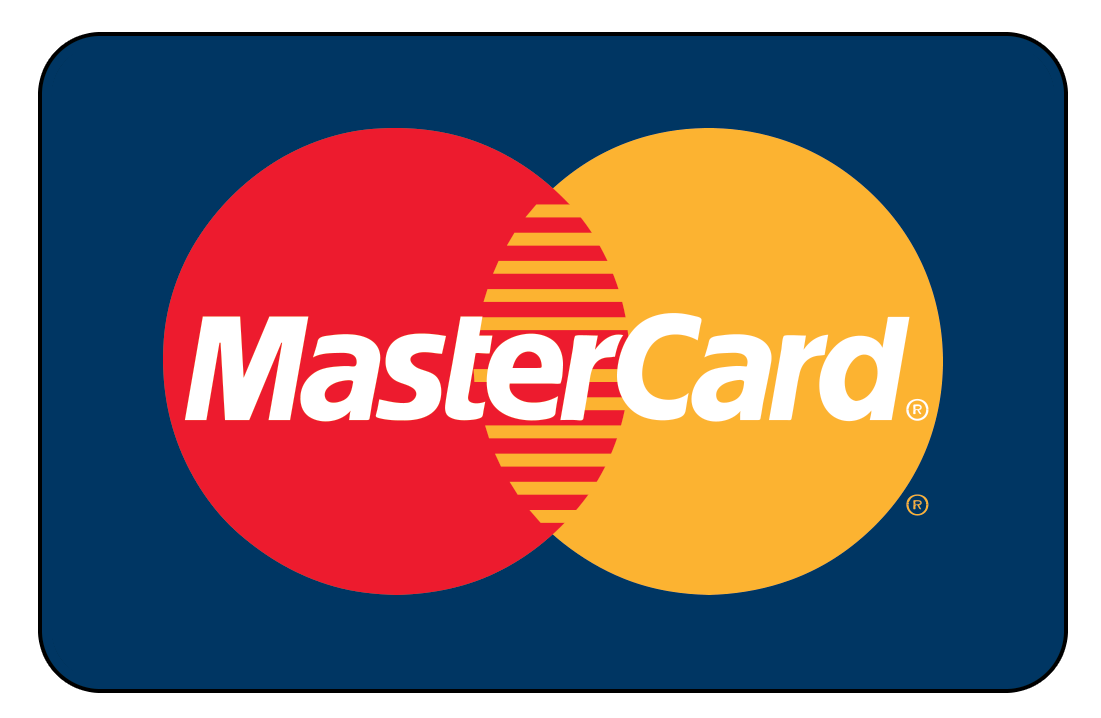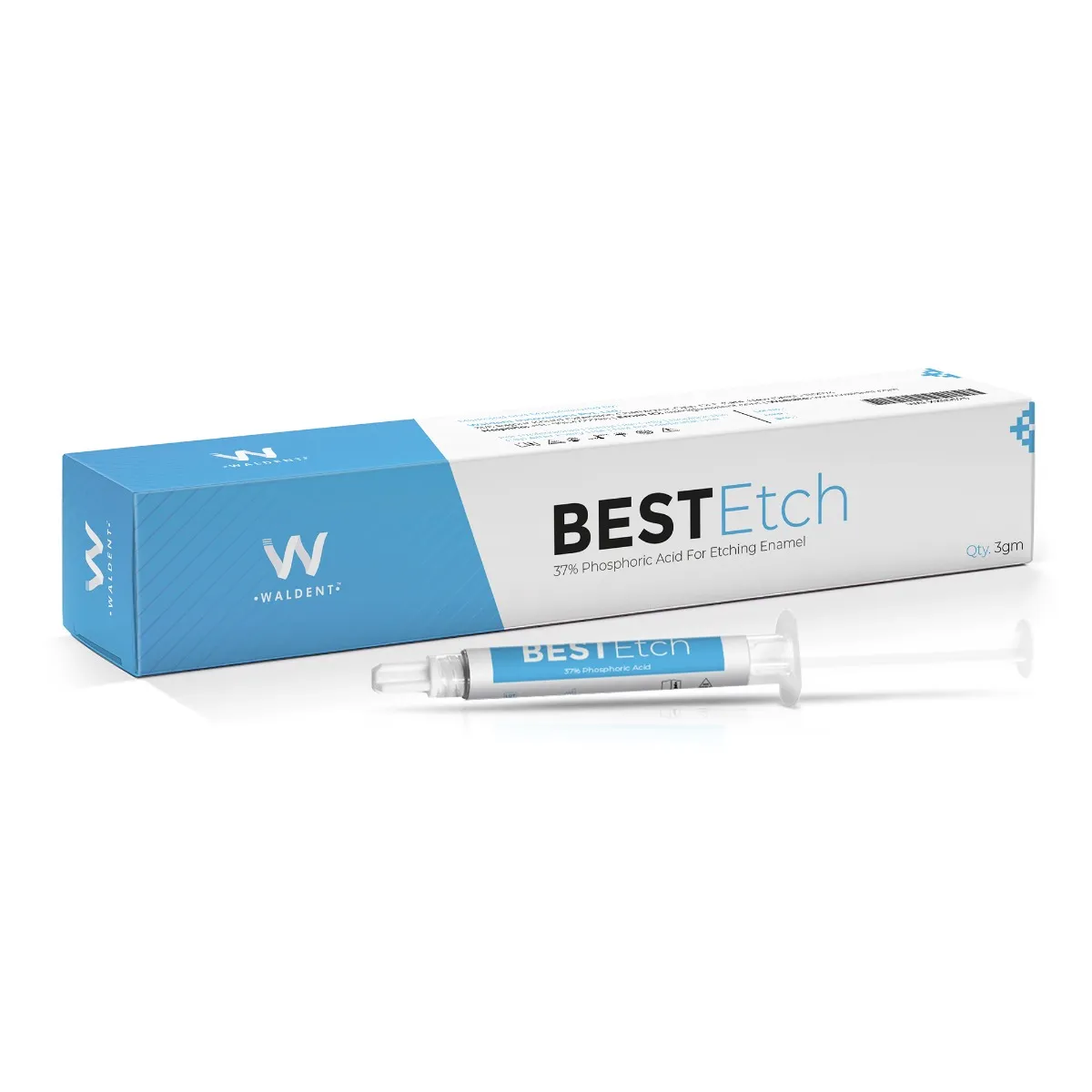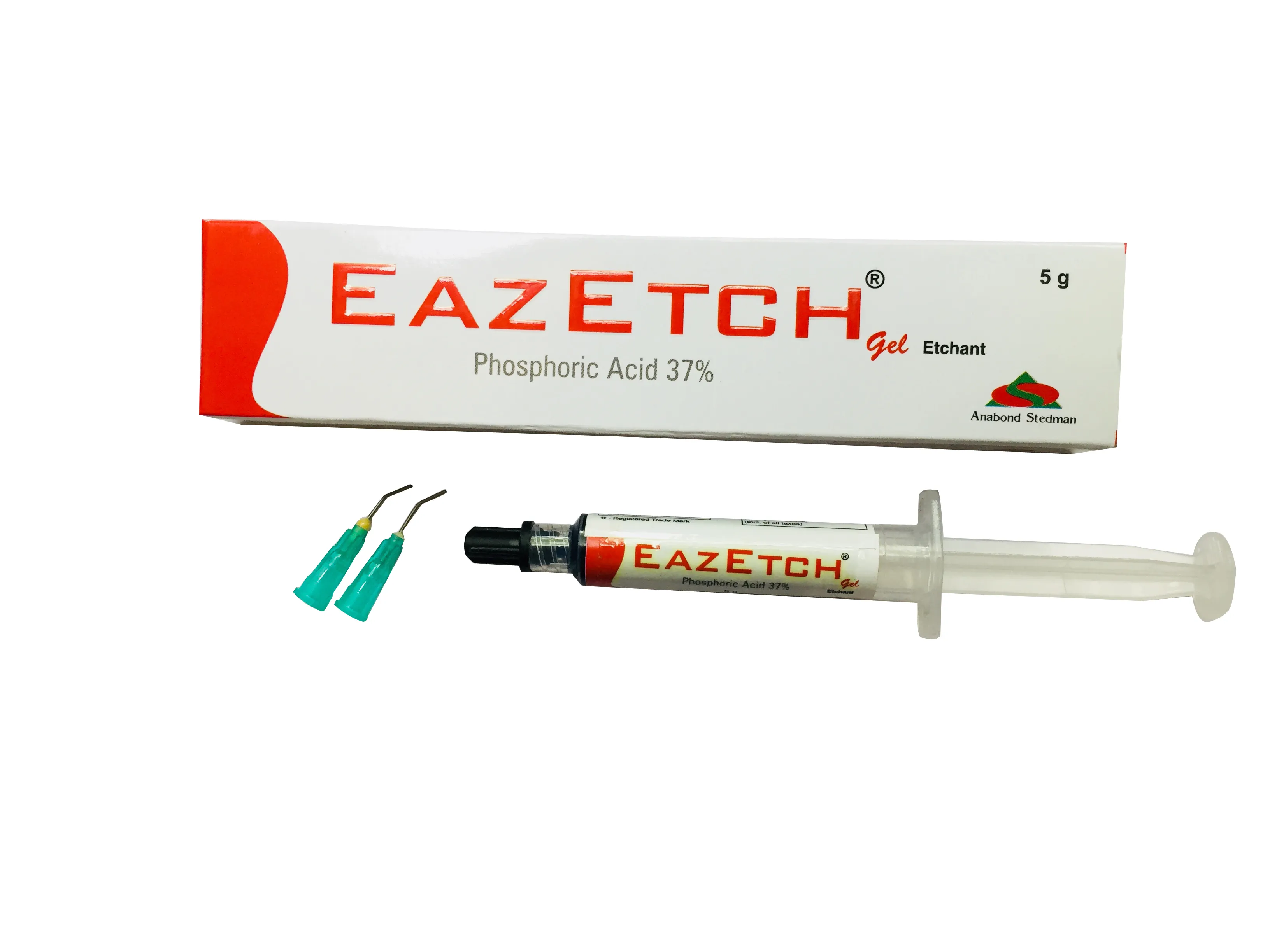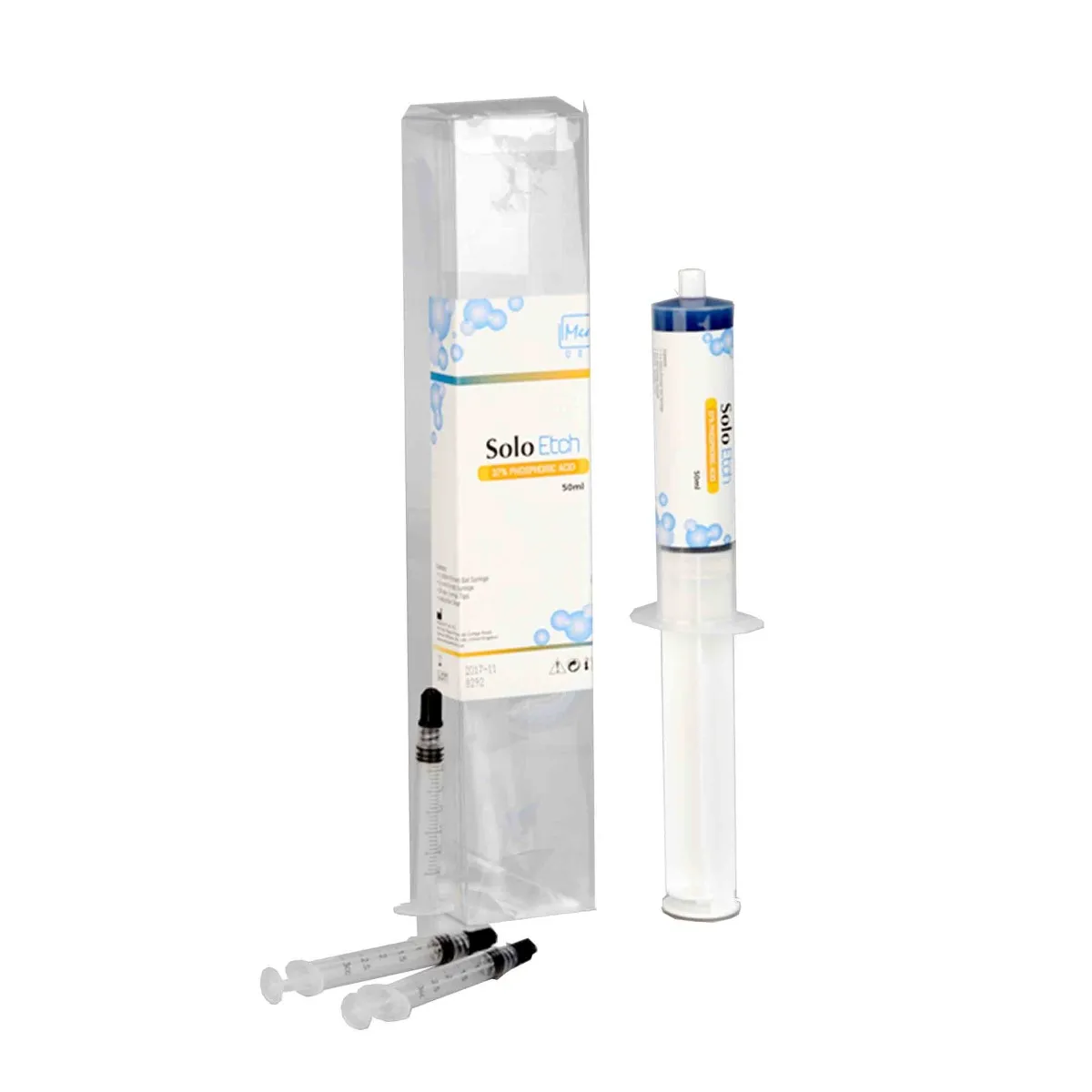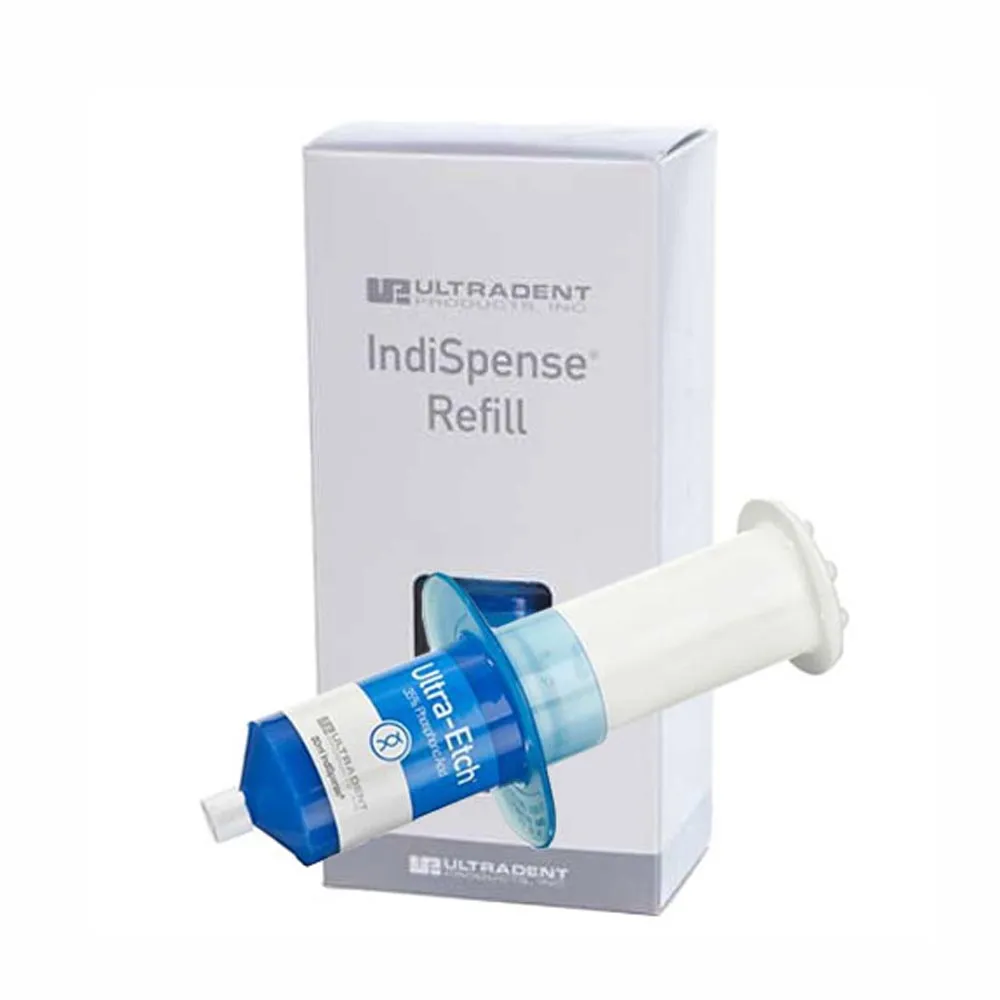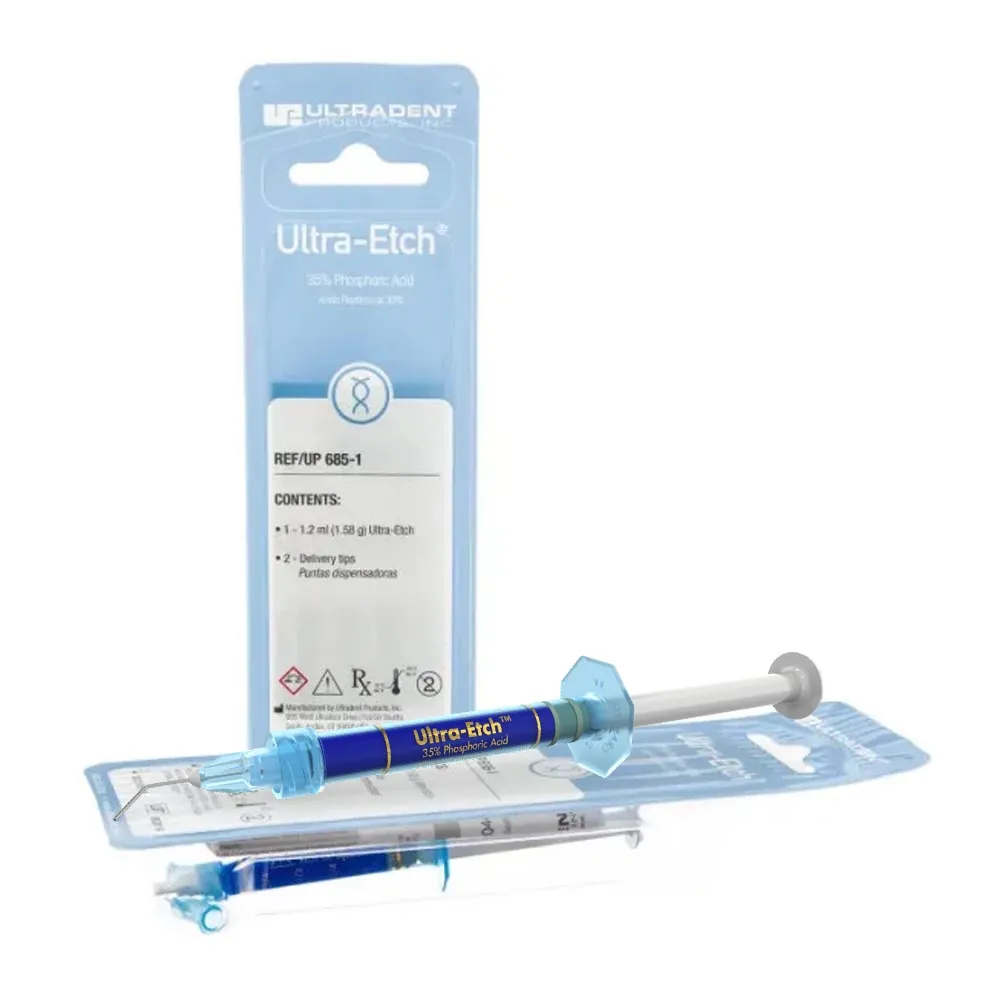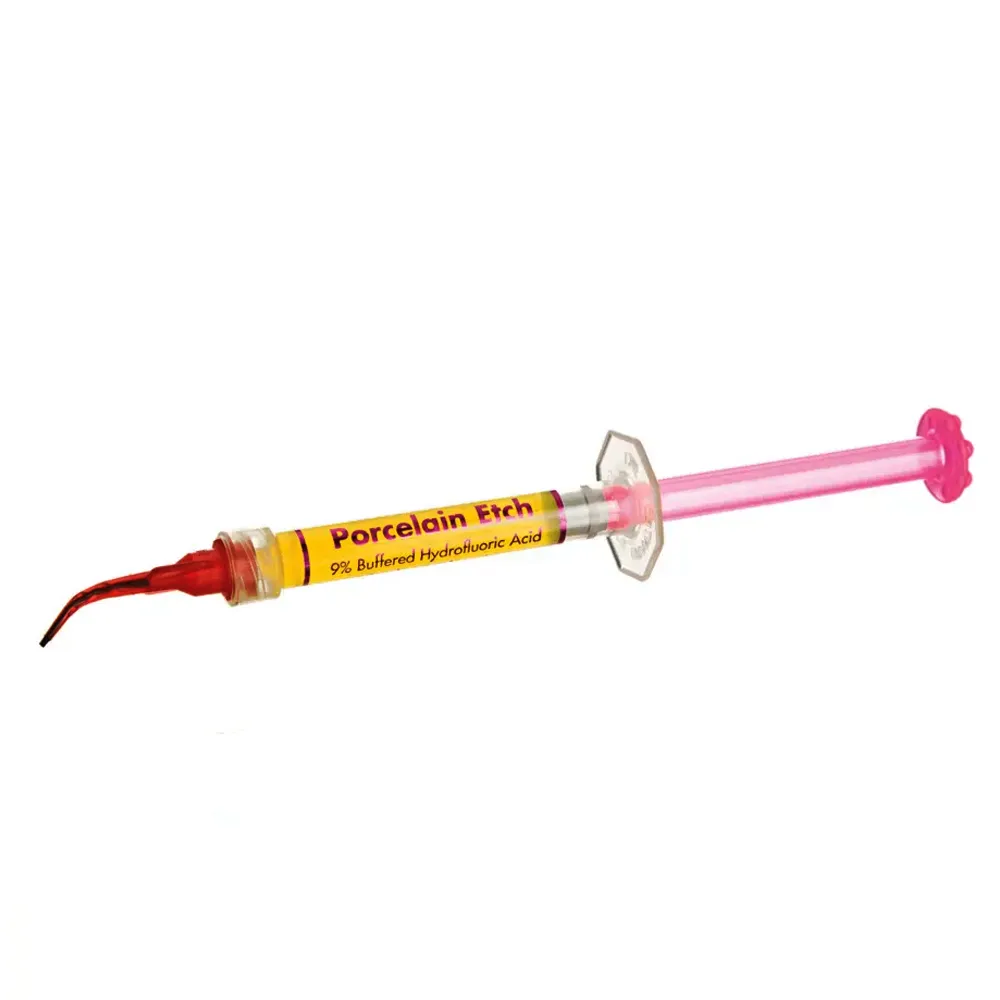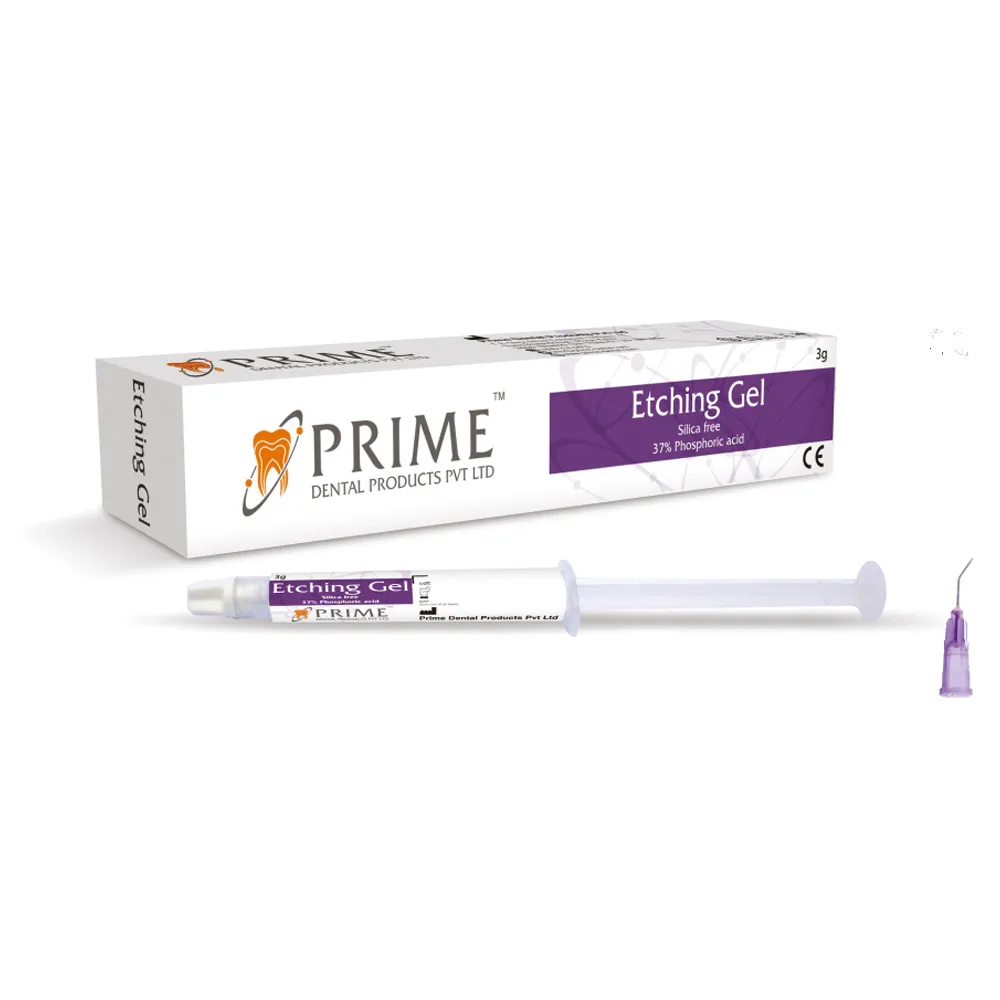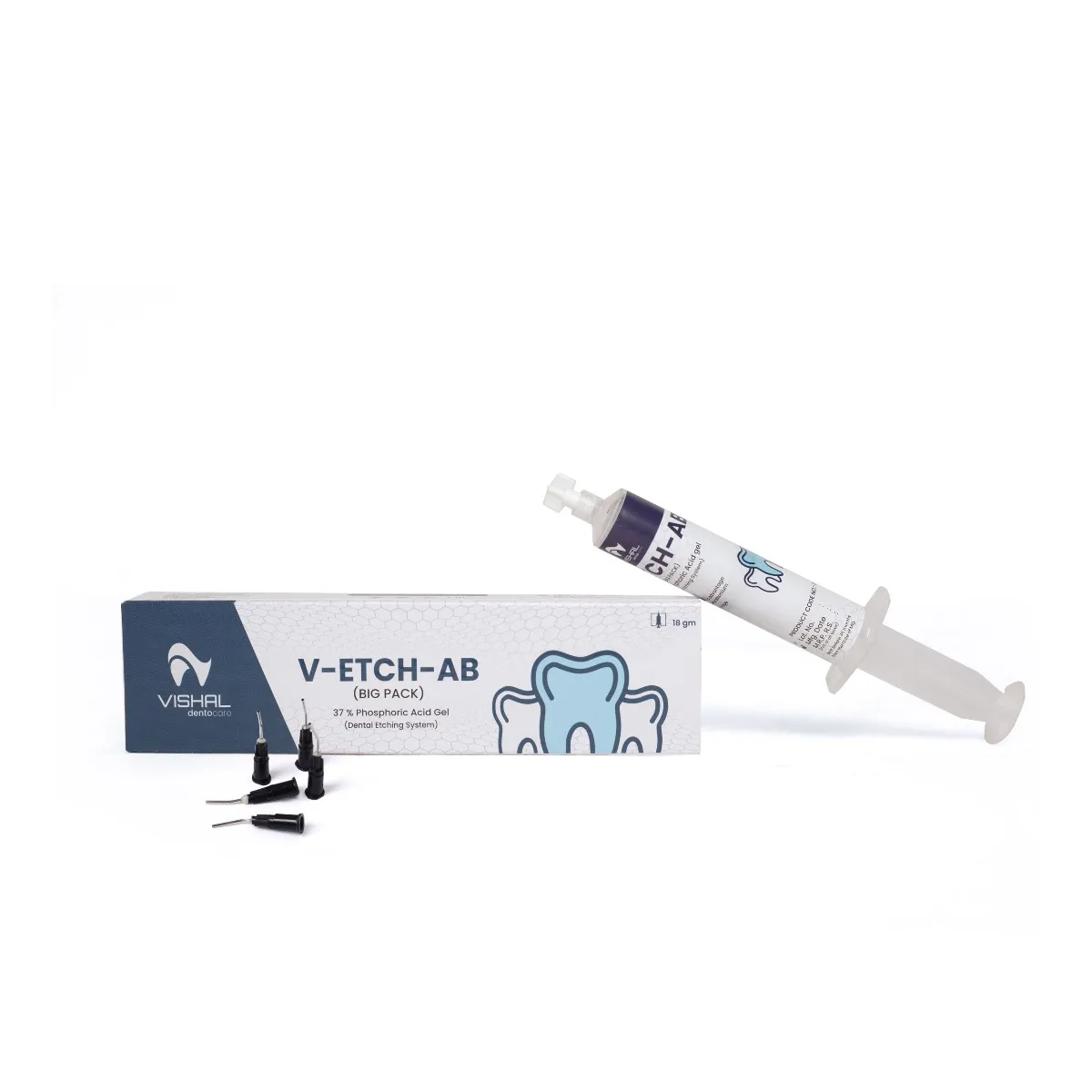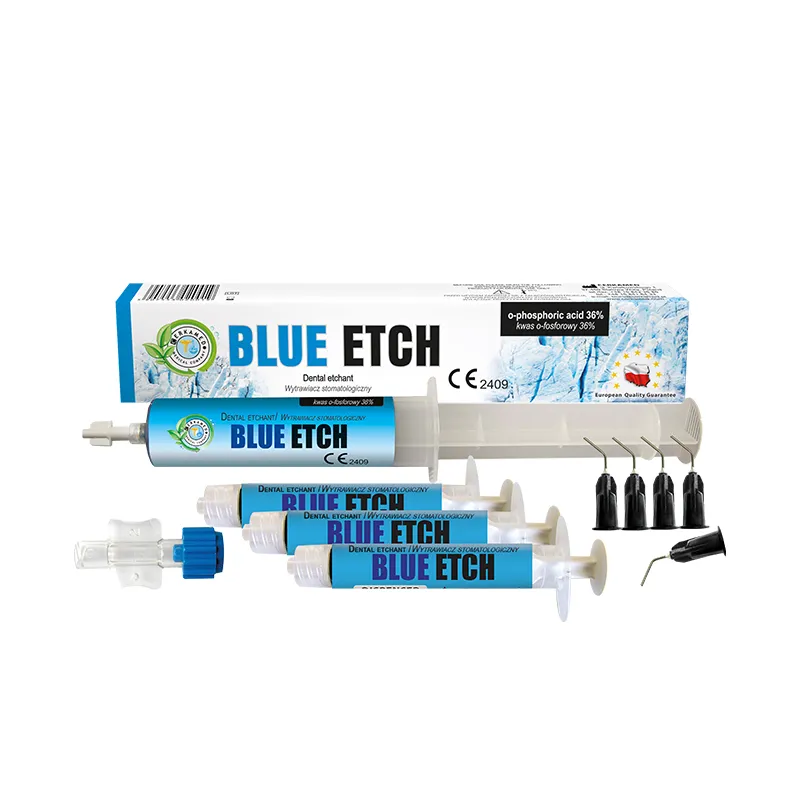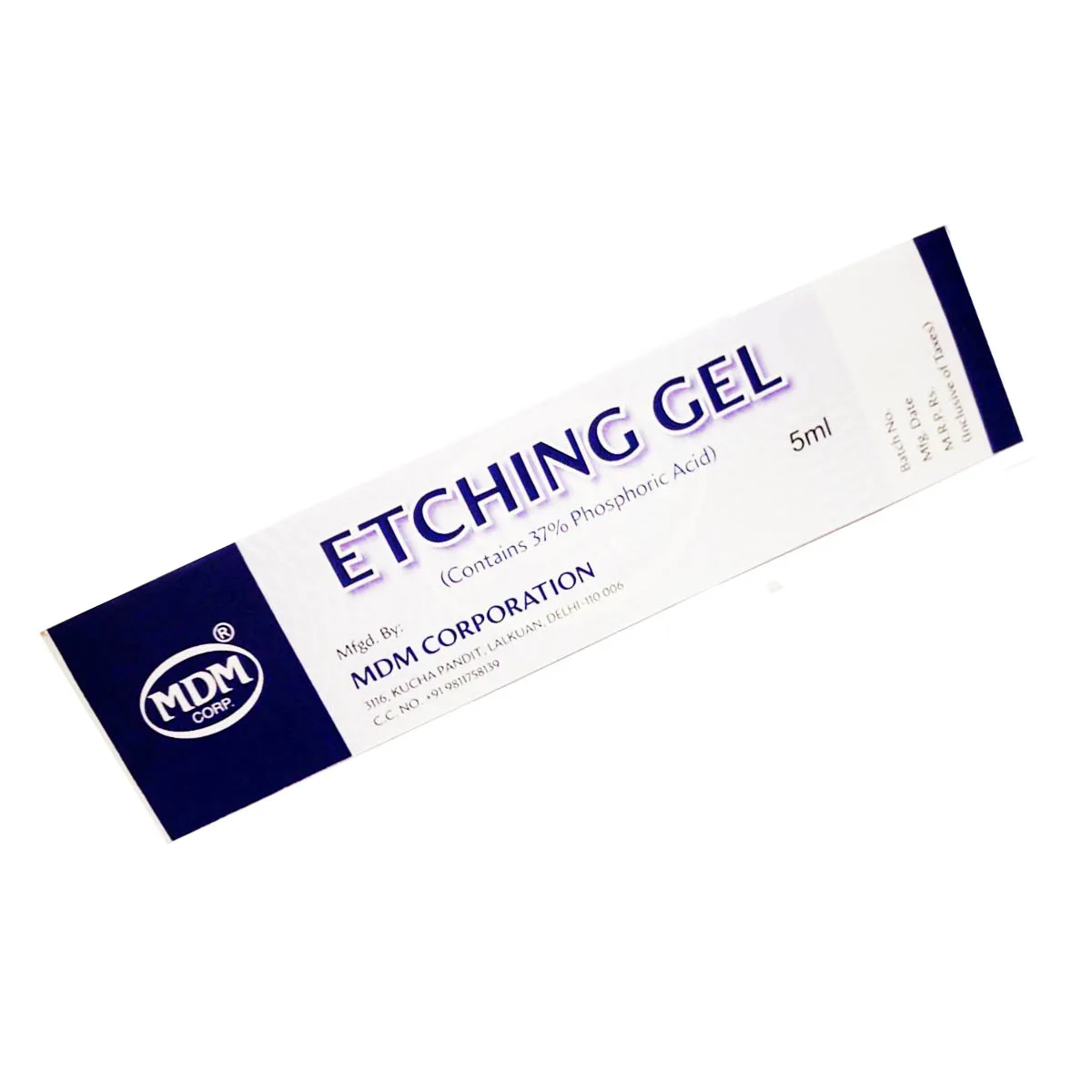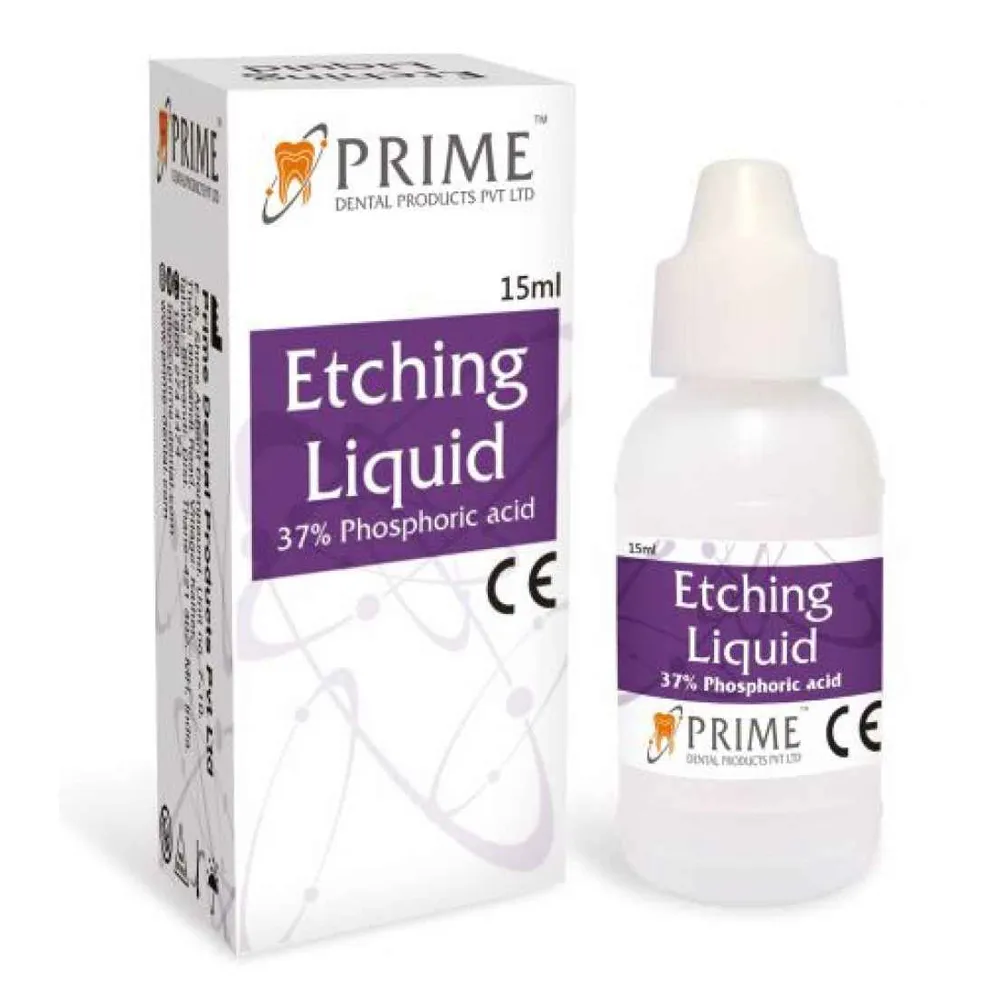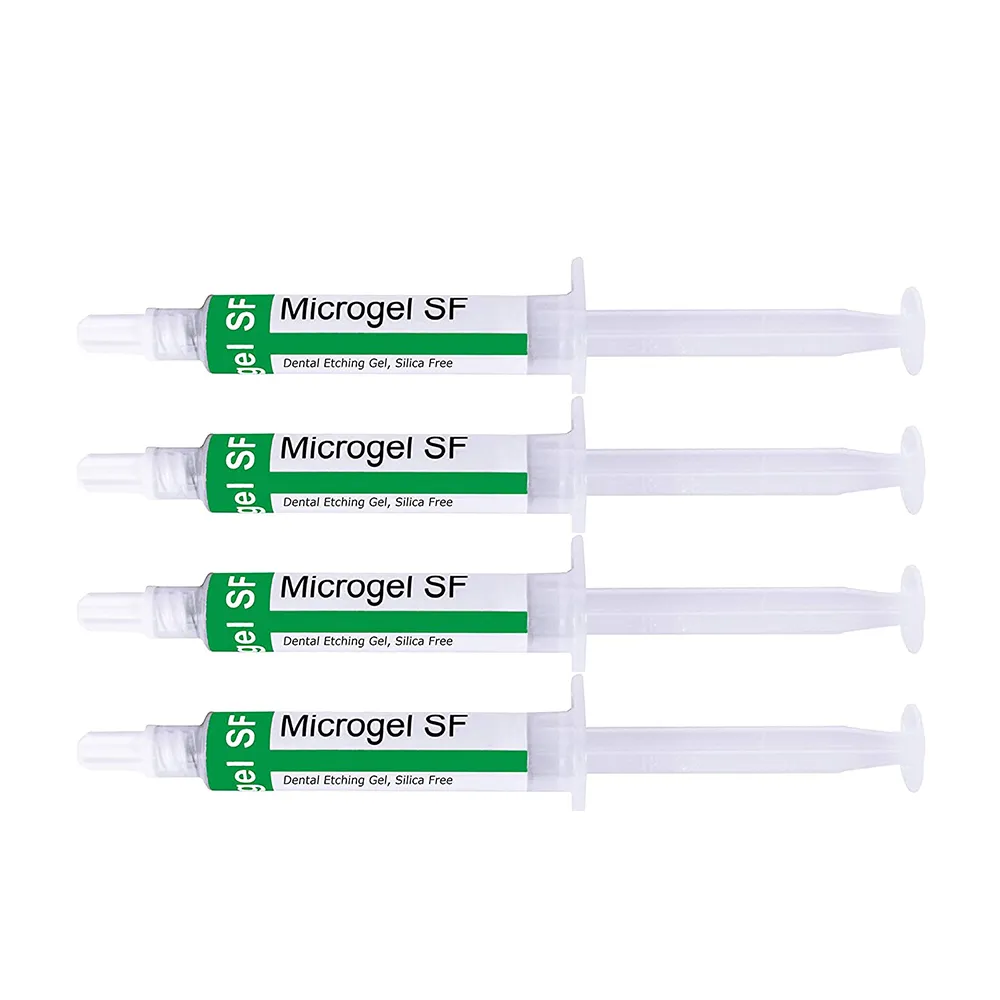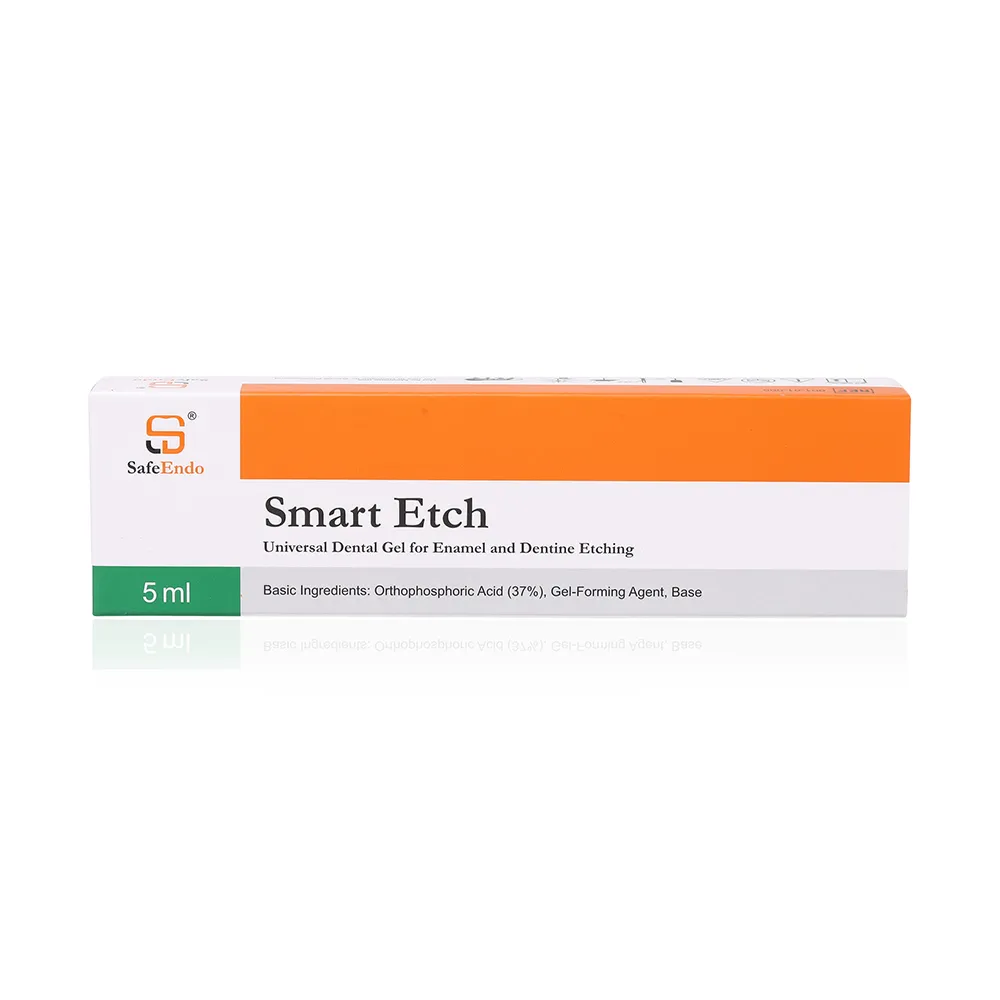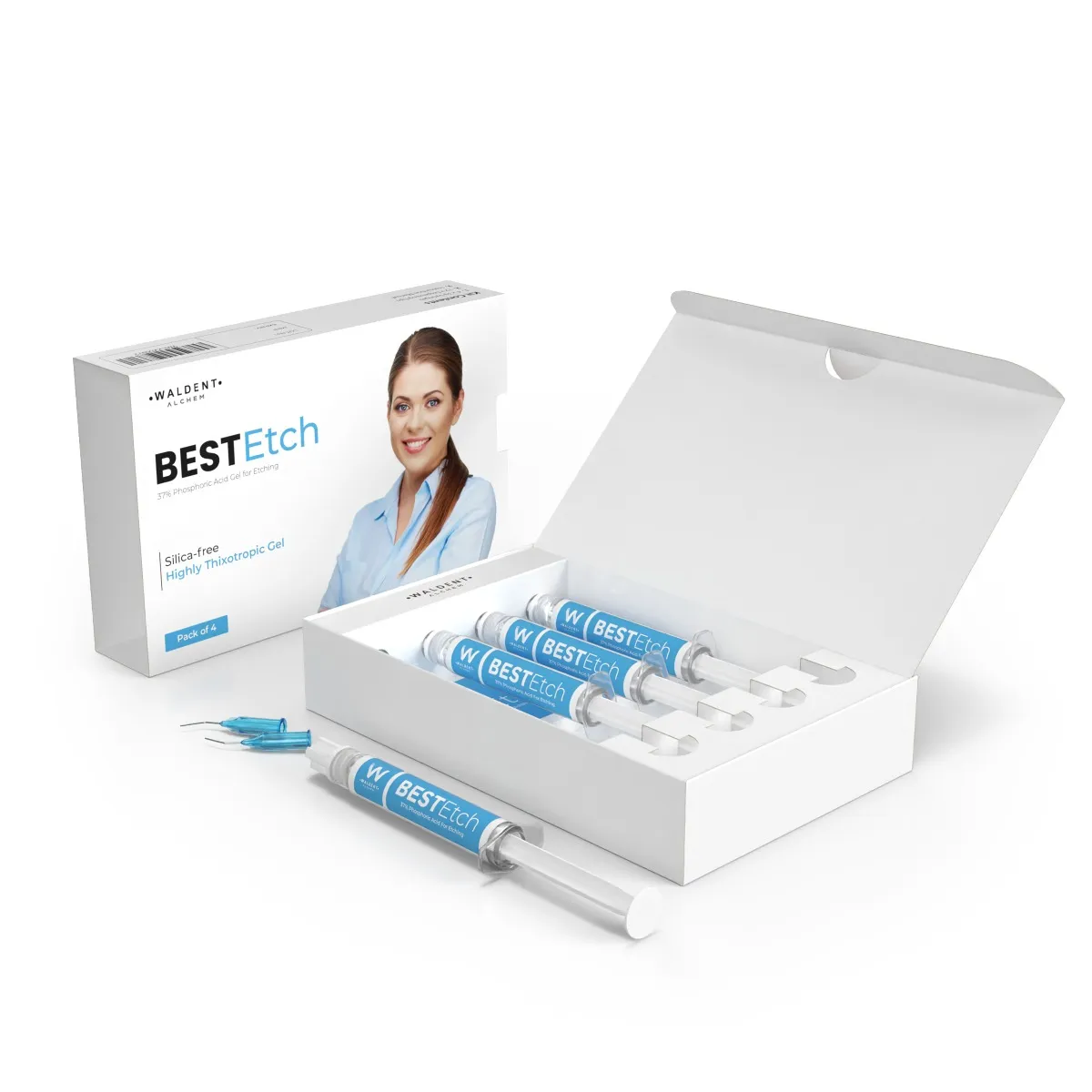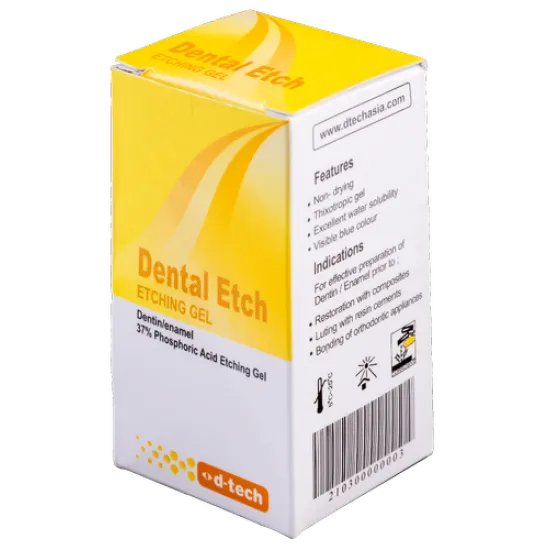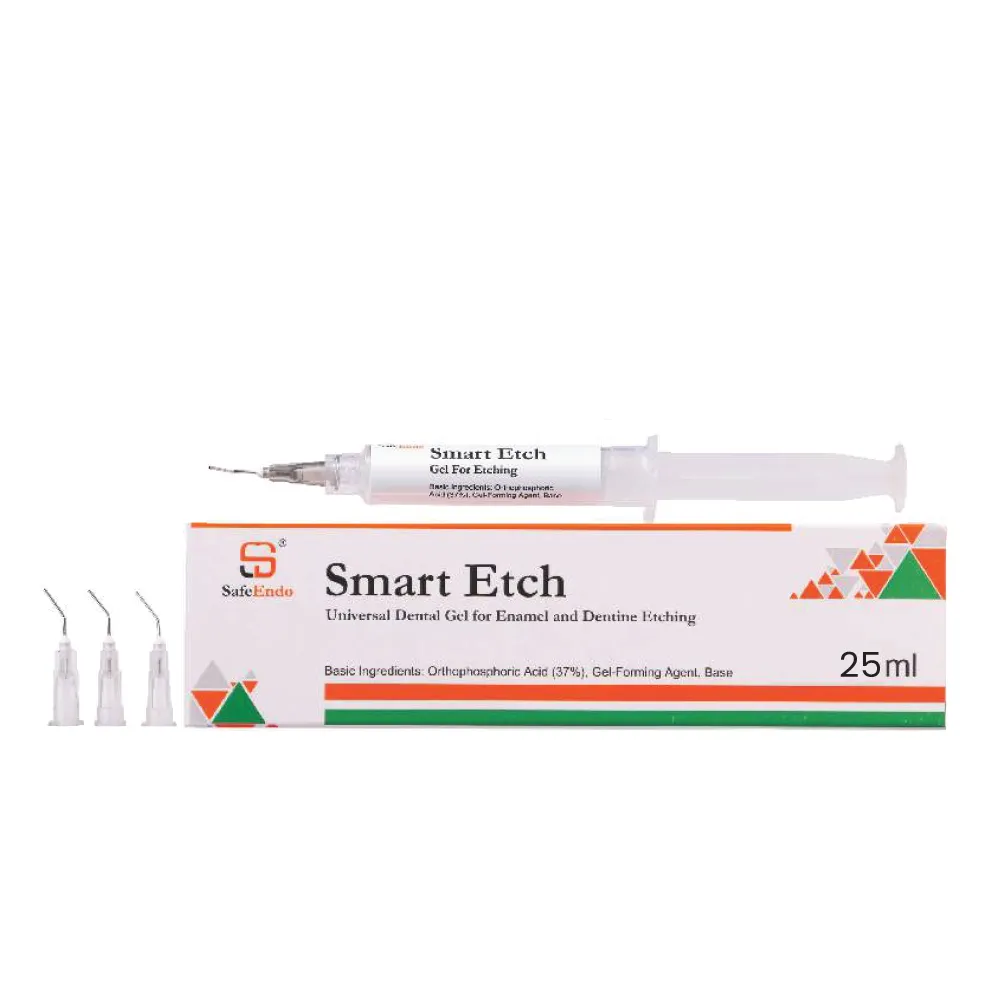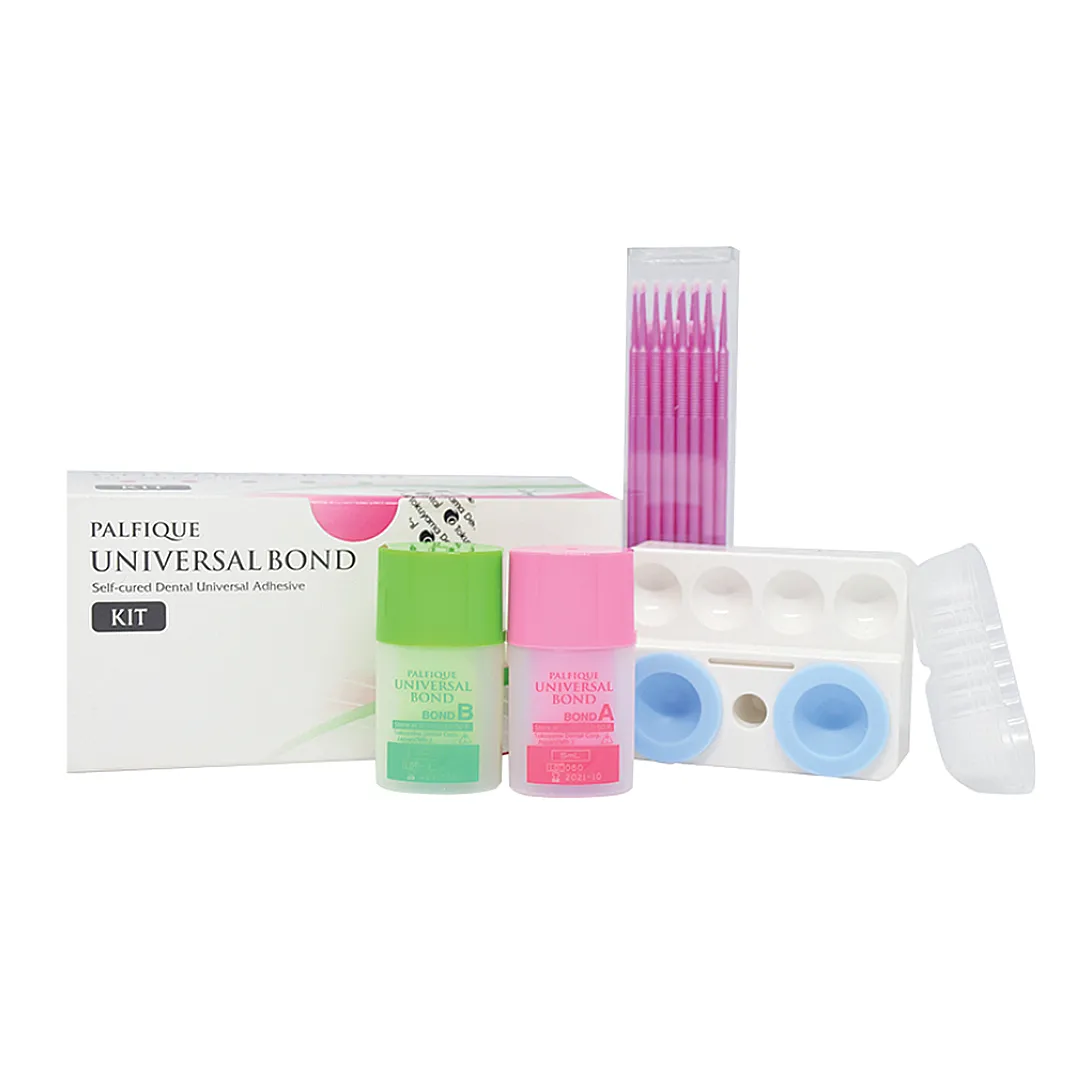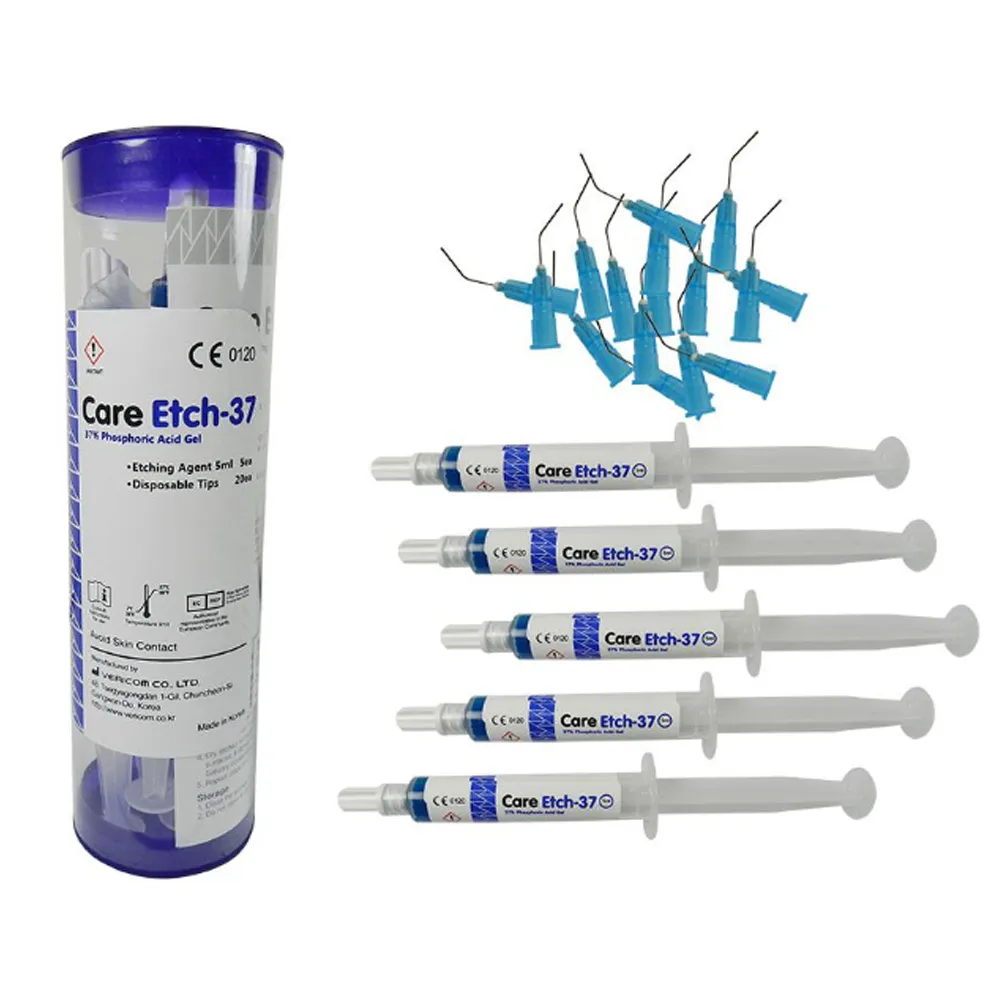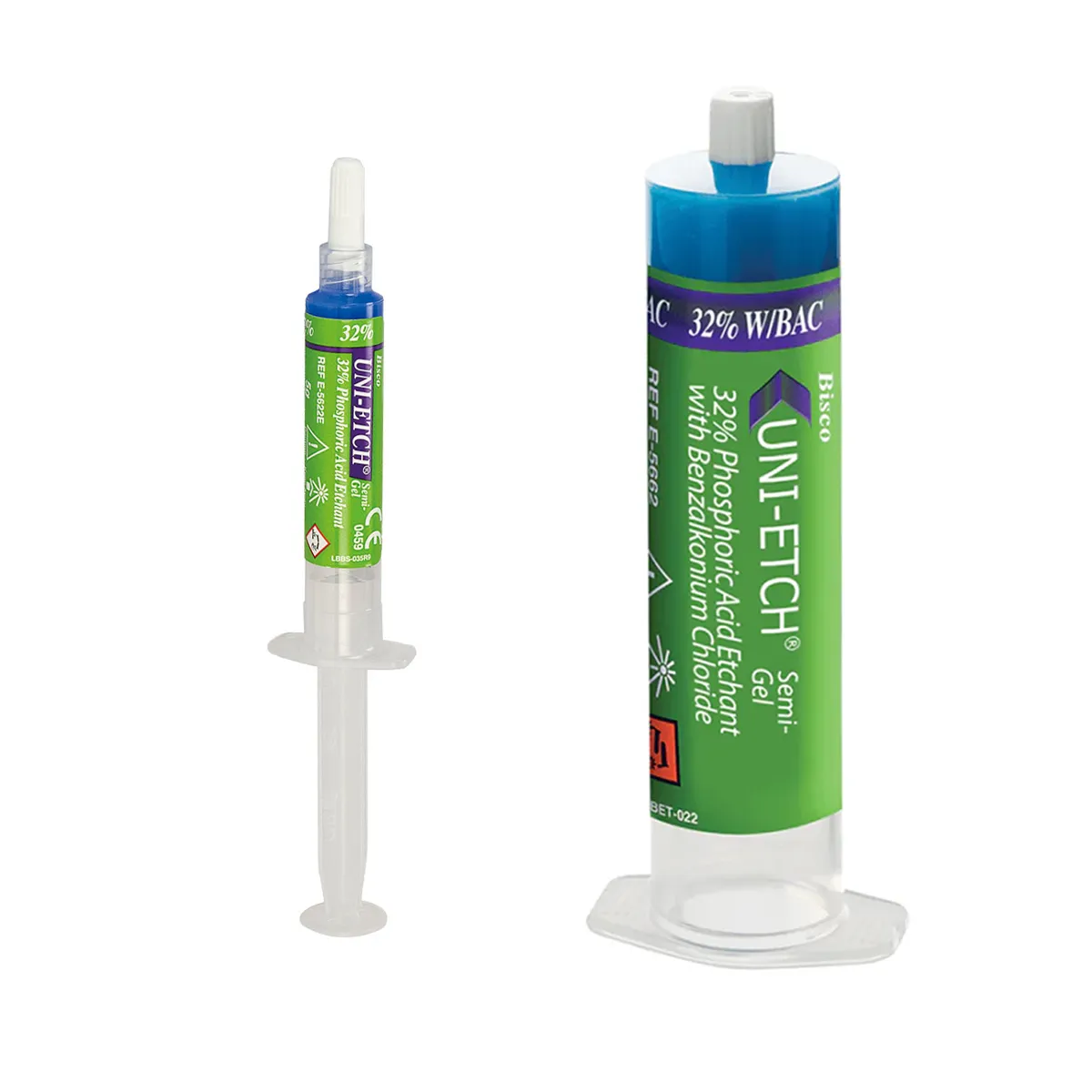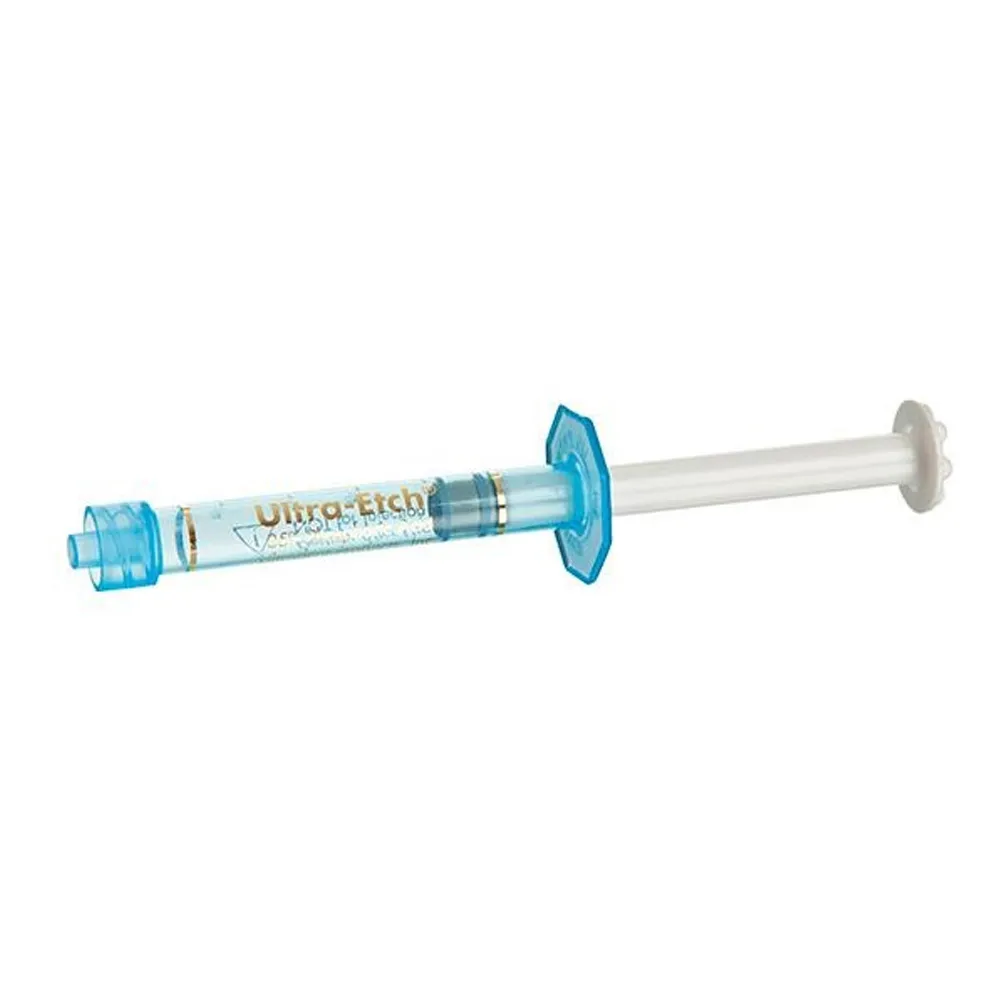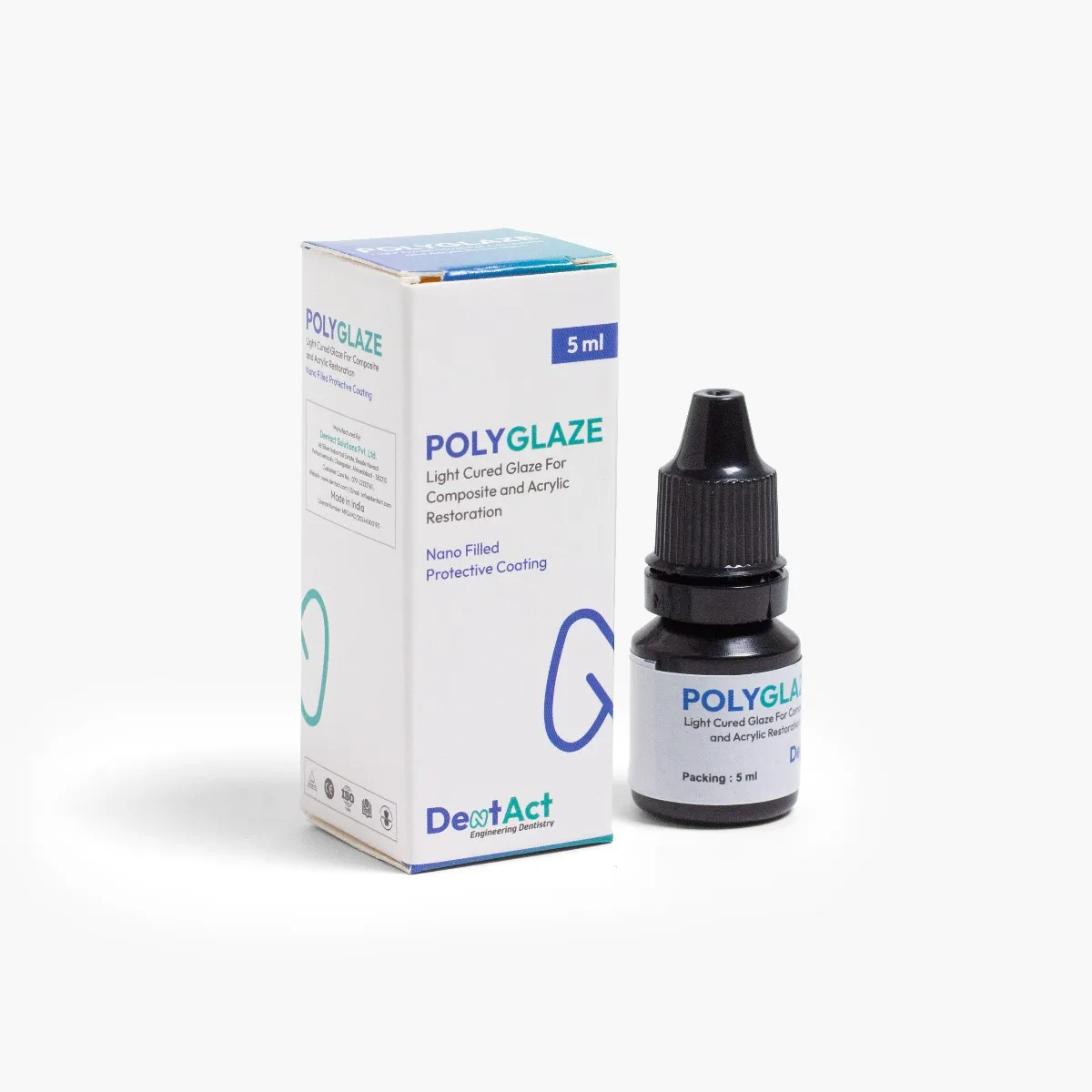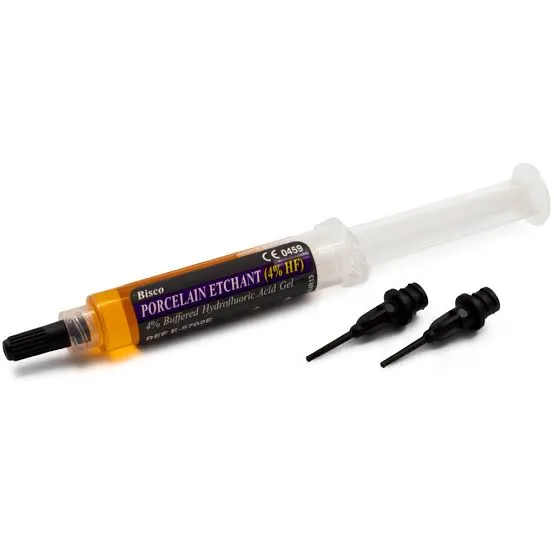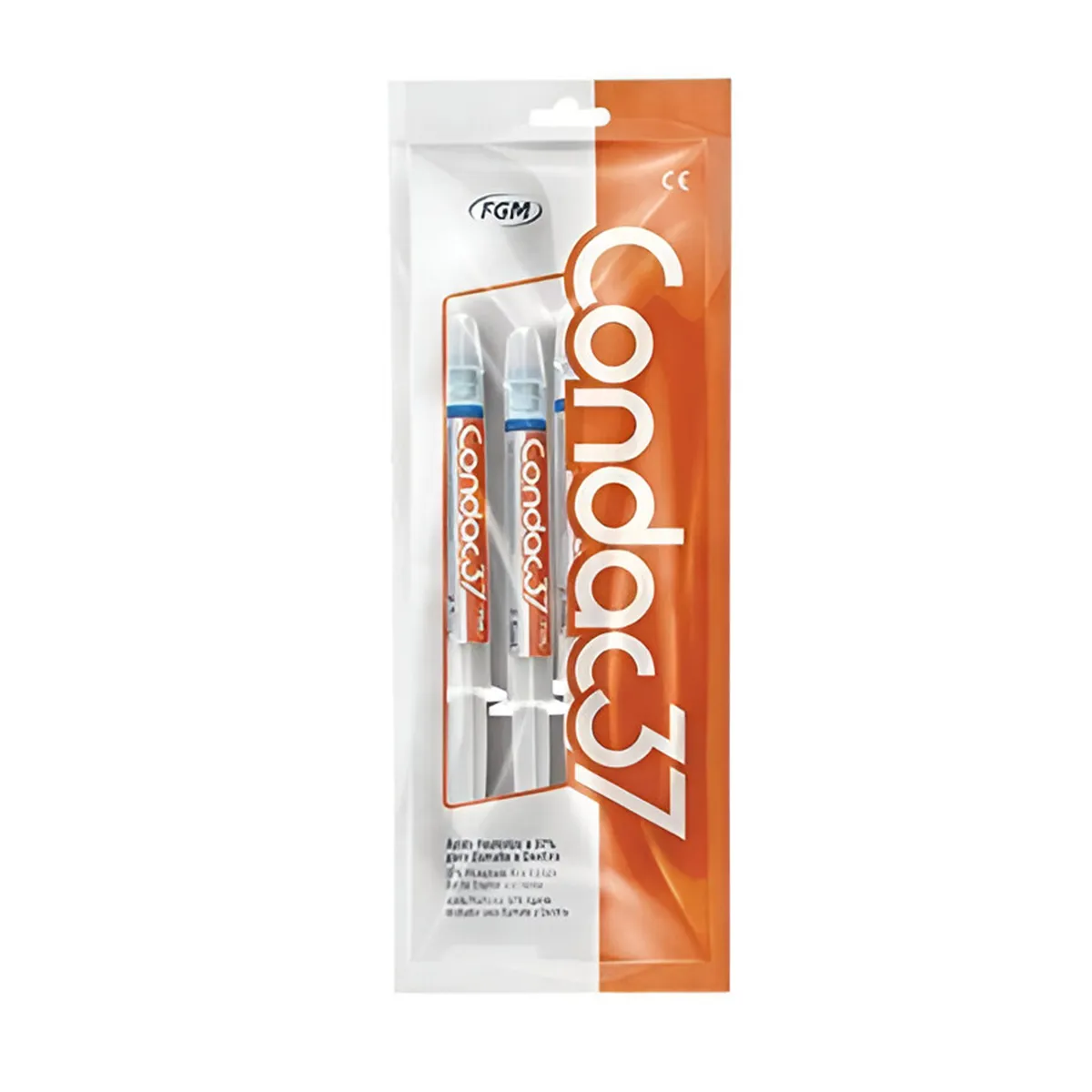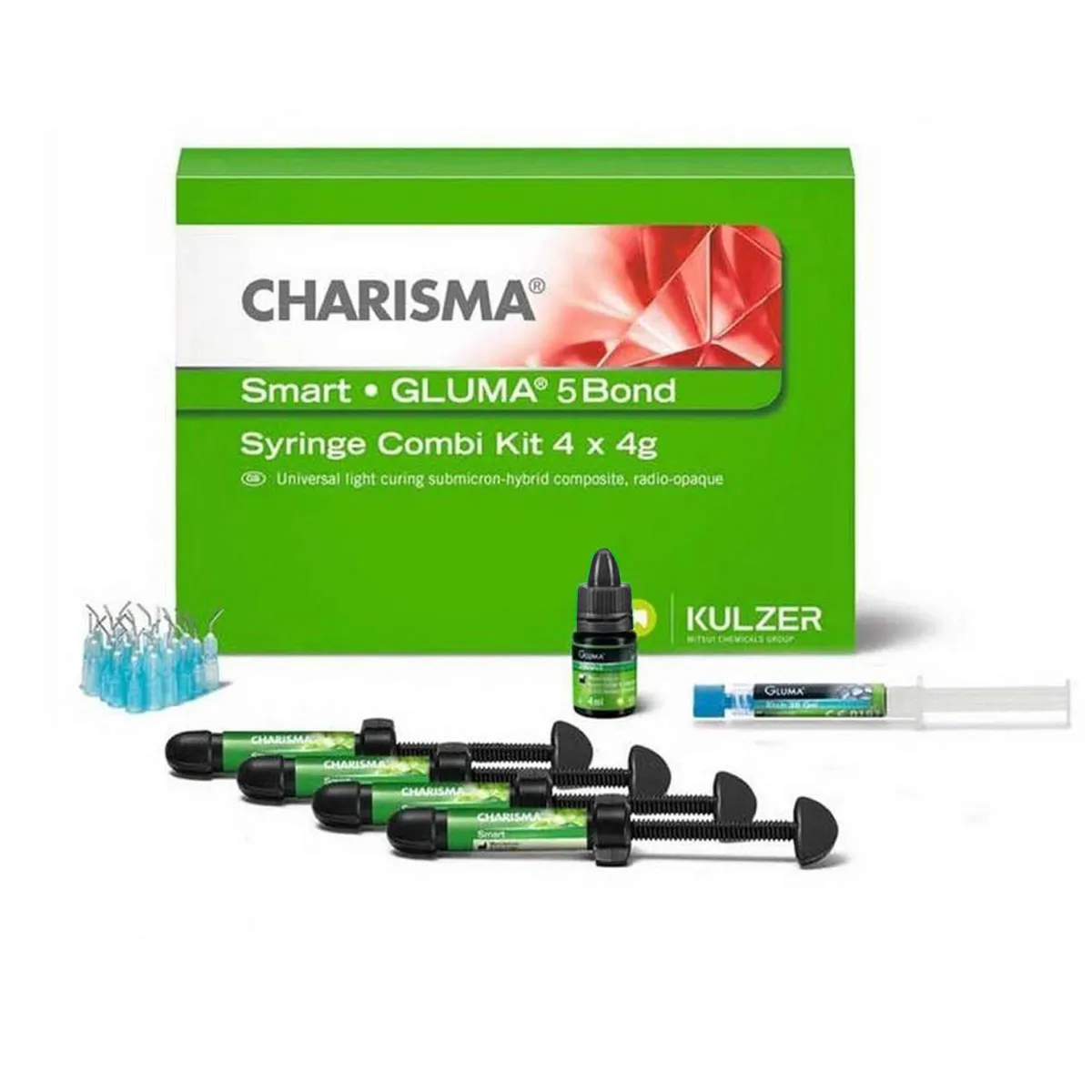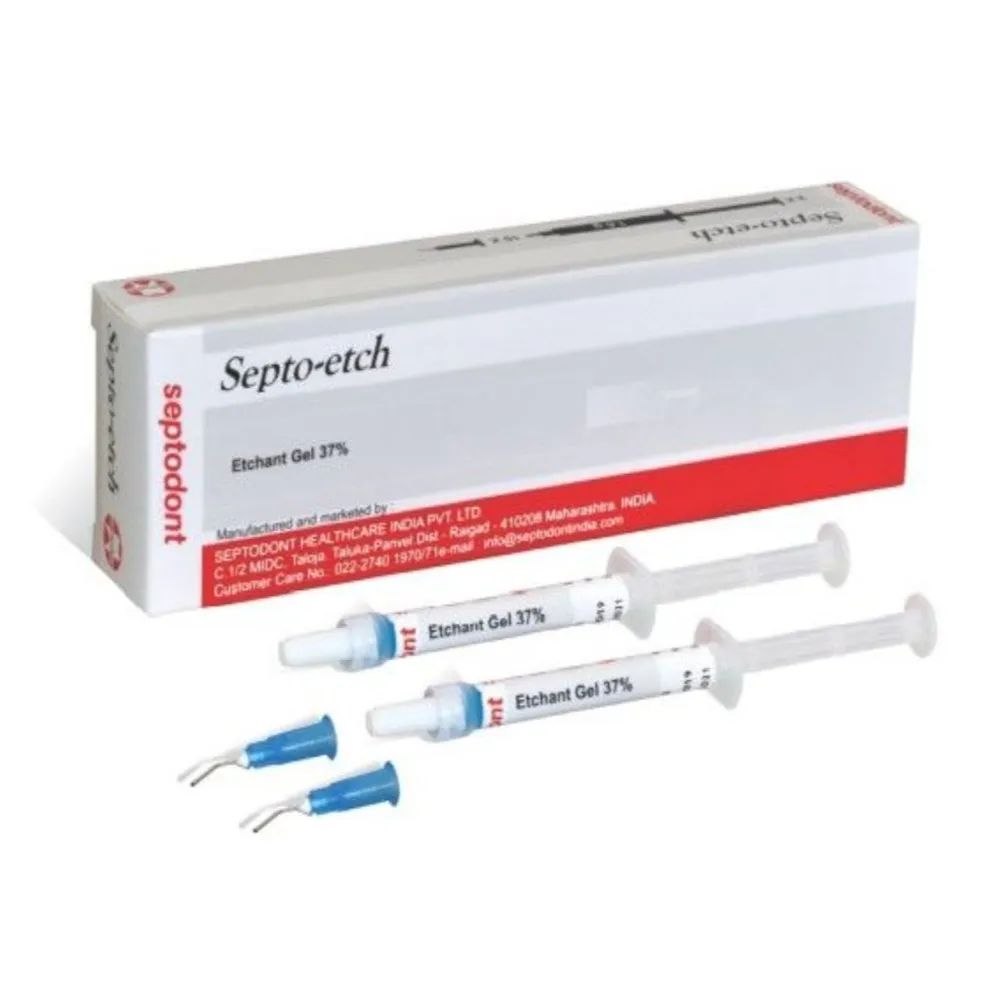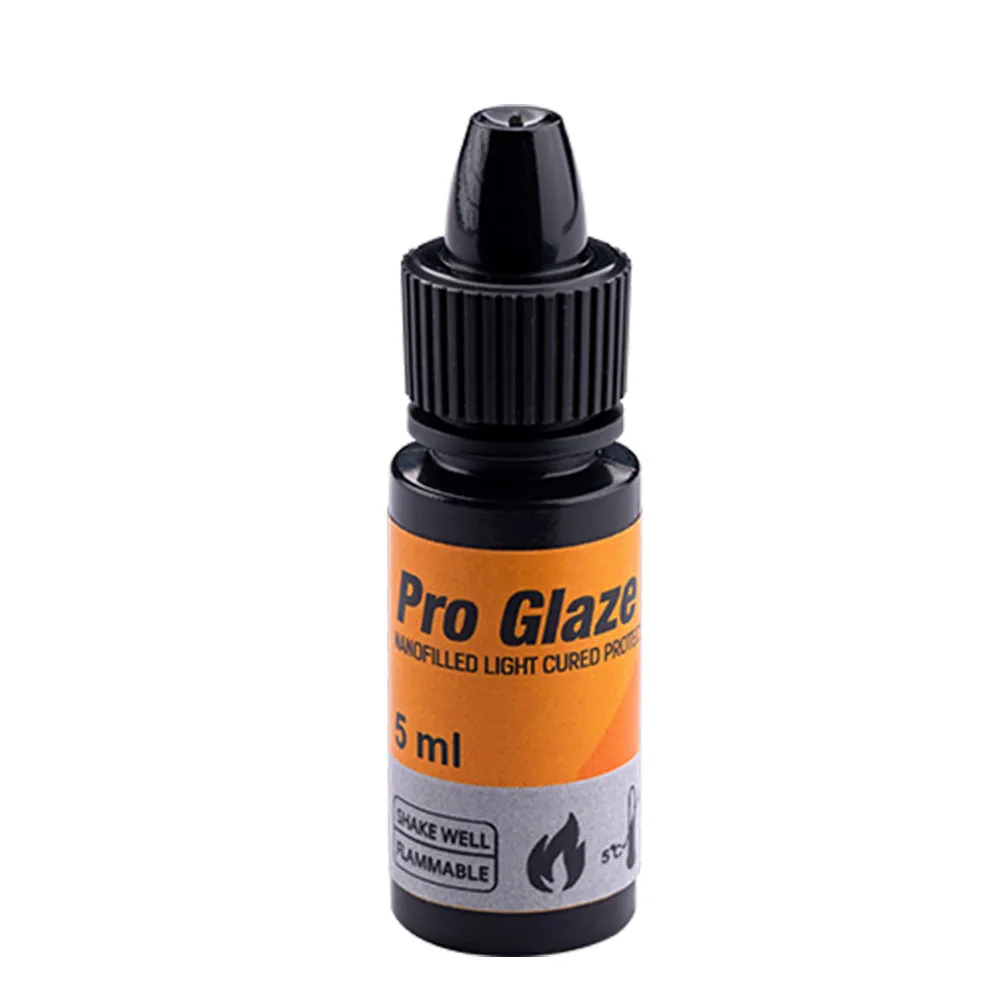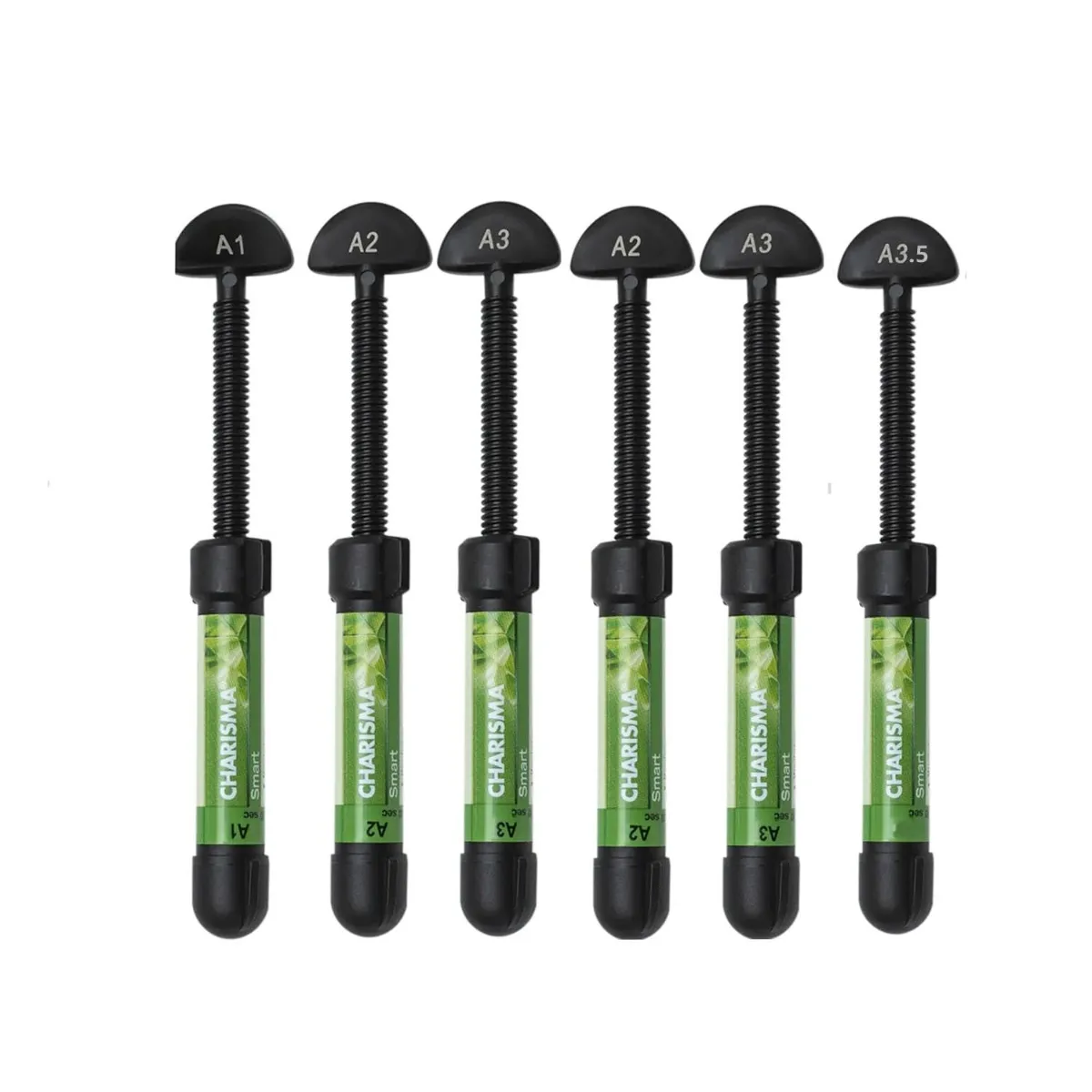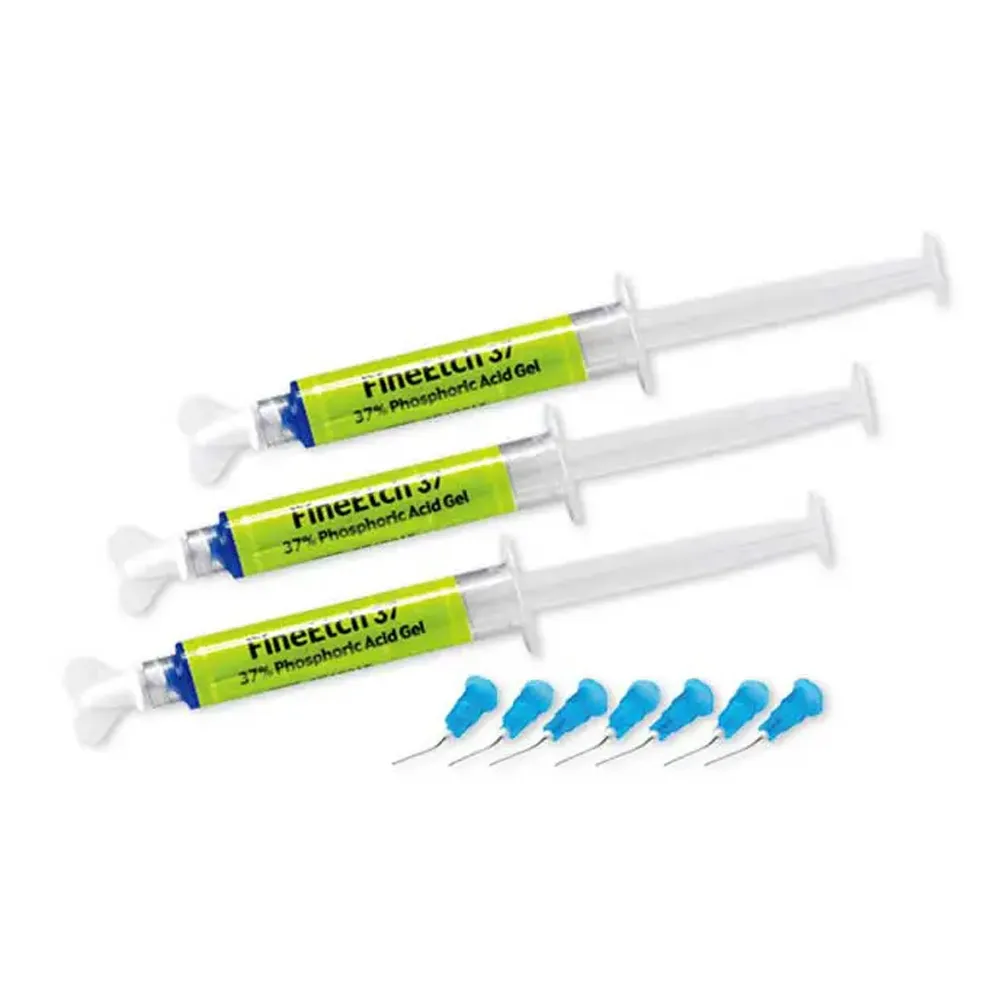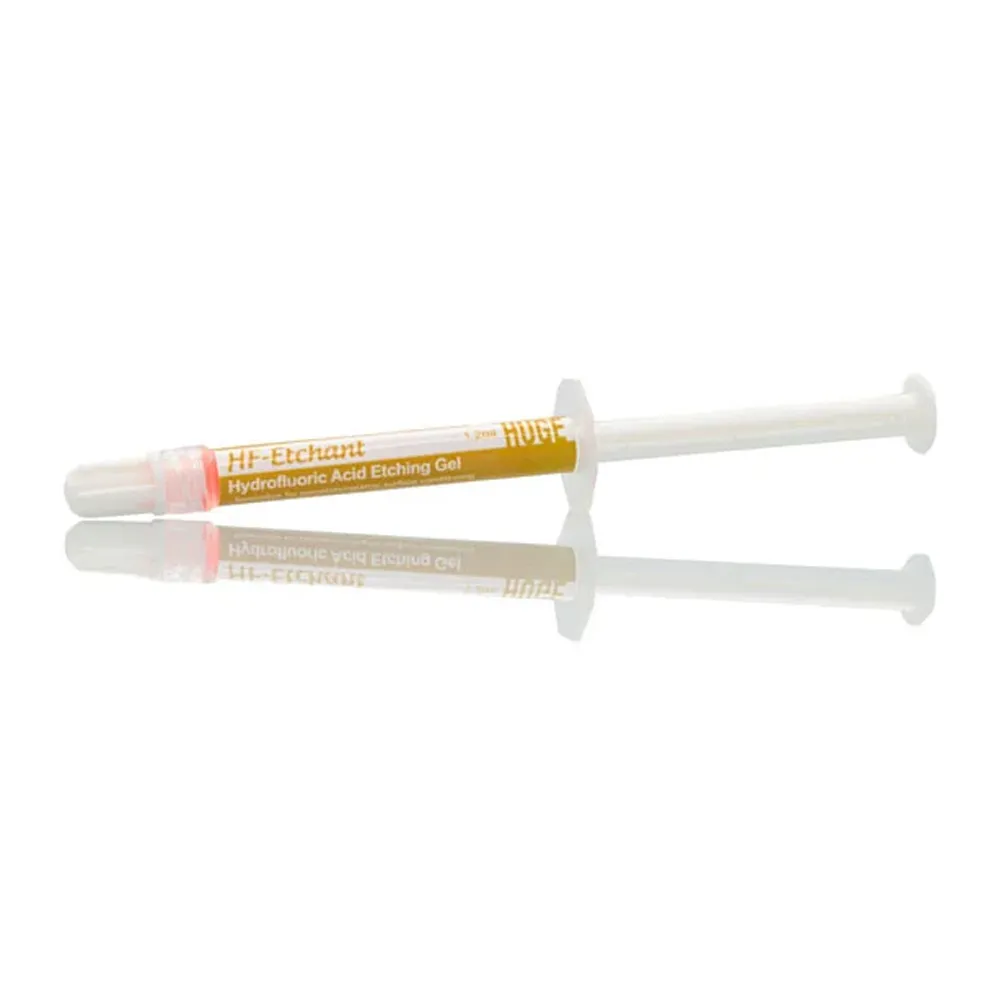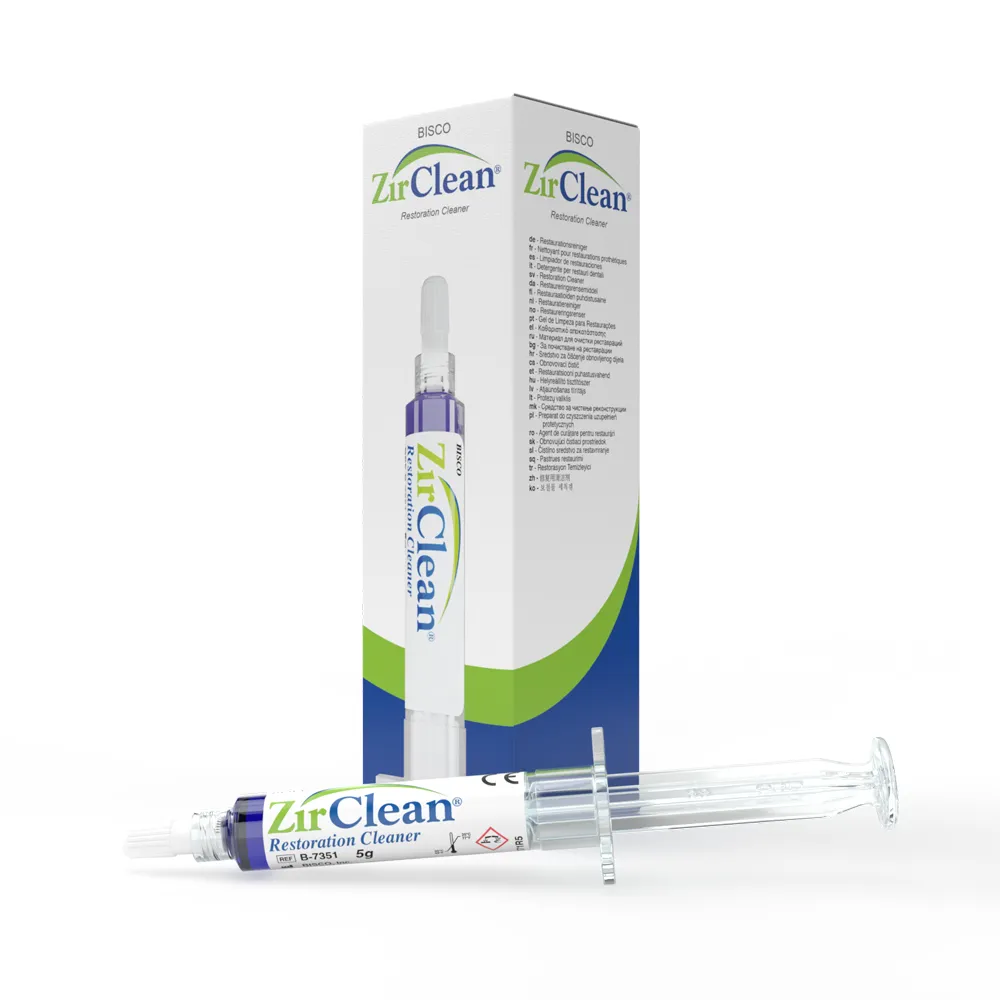Etchants for Dental Professionals
In the world of dentistry, etchants stand as a fundamental category of dental materials that play a pivotal role in ensuring successful restorative procedures. At Dentalkart, we recognize the paramount importance of etchants in dental practice, and we are proud to present an extensive array of etchants sourced from esteemed brands such as Ammdent, FGM, Medicept, Prevest Denpro, Ultradent, Vishal Dentocare, Waldent, and many more. Our commitment is to provide dental professionals with a comprehensive selection of etchants that are tailored to meet the specific requirements of their practice, ultimately facilitating reliable and efficient dental procedures.
Significance of Etchants in Dentistry: Etchants serve as a cornerstone in the realm of modern dentistry due to their pivotal roles and functions:
- Surface Preparation: Etchants are instrumental in the preparation of tooth surfaces. By creating a microscopically roughened surface, etchants enhance the bond between the tooth and various restorative materials such as dental composites, sealants, and bonding agents. This is critical for the long-term success and durability of dental restorations.
- Minimization of Microleakage: Proper etching ensures a tight seal between the tooth and the restorative material, effectively minimizing the risk of microleakage. Microleakage, if left unaddressed, can lead to secondary decay and the eventual failure of the restoration.
- Improved Adhesion: Etchants play a pivotal role in achieving superior adhesion between the tooth structure and the restorative material. This robust bond ensures the durability and aesthetics of dental work.
Types of Etchants: Dentalkart offers a diverse range of etchants, each meticulously designed to cater to specific dental applications:
- Phosphoric Acid Etchants: These etchants are commonly used for enamel etching prior to bonding procedures, including composite restorations and the placement of orthodontic brackets. Phosphoric acid etchants are particularly effective in creating a suitable surface for adhesion.
- Self-Etching Bonding Agents: Combining the etching and bonding steps into one, self-etching bonding agents simplify the restoration process while ensuring consistent and reliable adhesion. This innovation is particularly valuable in clinical scenarios where efficiency is paramount.
- Gel and Liquid Etchants: Dentalkart offers both gel and liquid forms of etchants, allowing dental professionals to choose based on their preference and the specific clinical requirements of the procedure at hand. This flexibility ensures that each dental professional can work comfortably and effectively.
- Fluoride-Releasing Etchants: Beyond surface preparation, some etchants also release fluoride, contributing to cavity prevention and the strengthening of tooth enamel. This dual functionality enhances the overall oral health benefits of using etchants.
Dentalkart is your trusted partner in acquiring high-quality etchants for your dental practice. Our extensive selection ensures that dental professionals can find the perfect etchant to suit their unique needs and preferences. We take immense pride in offering etchants from reputable brands, guaranteeing consistency and reliability in every product we provide.
Our commitment to quality and customer satisfaction sets Dentalkart apart as the preferred choice for dental professionals seeking top-notch etchants and other dental materials. Our dedication to your success is reflected in:
- Detailed Product Information: Dentalkart provides comprehensive product information, empowering dental professionals with the knowledge necessary to make informed decisions about their purchases. We understand that well-informed choices contribute to successful clinical outcomes.
- Competitive Pricing: We offer competitive pricing on all our products, including etchants, ensuring that quality dental materials are accessible to practitioners of all levels. Our goal is to support dental professionals in delivering the highest level of care to their patients while managing their budget effectively.
- Seamless Shopping Experience: Our user-friendly online platform makes shopping for etchants and other dental supplies a hassle-free experience. We have designed our website to be intuitive, secure, and efficient, allowing you to browse, select, and purchase products with ease.
Q: What is the purpose of using an etchant in dentistry?
A: Etchants are used in dentistry to prepare the tooth surface for restorative procedures. They create a microscopically rough surface on the tooth, promoting adhesion between the tooth and restorative materials like composites, sealants, and bonding agents.
Q: How does an etchant work?
A: Etchants typically contain an acid, such as phosphoric acid, which selectively removes the superficial layer of the tooth's enamel or dentin. This creates a roughened surface with microscopic porosities that facilitate the mechanical bonding of restorative materials.
Q: Is etching necessary for all restorative procedures?
A: Etching is essential for many restorative procedures, especially those involving composite materials. It helps ensure a strong and durable bond between the tooth and the restorative material.
Q: Are there any contraindications or precautions when using etchants?
A: Dentists should exercise caution when using etchants on patients with a history of enamel defects, allergies to the etchant components, or hypersensitivity. Proper isolation and protection of adjacent tissues are also important to prevent damage.
Q: How long should an etchant be left on the tooth surface?
A: The recommended etching time can vary depending on the type of etchant being used. Typically, for phosphoric acid etchants, it's around 15-30 seconds on enamel and 10-15 seconds on dentin.
Q: Can etchants be used on both primary (baby) and permanent teeth?
A: Yes, etchants can be used on both primary and permanent teeth.
Q: Are there any post-etching rinsing and drying steps required?
A: After etching, it's essential to thoroughly rinse the tooth surface to remove the etchant. For phosphoric acid etchants, air drying is commonly used, while self-etching bonding agents may require a gentle air and water drying process.
Q: Are there any alternatives to traditional phosphoric acid etchants?
A: Yes, some newer bonding systems incorporate self-etching primers that reduce the need for separate etching.








